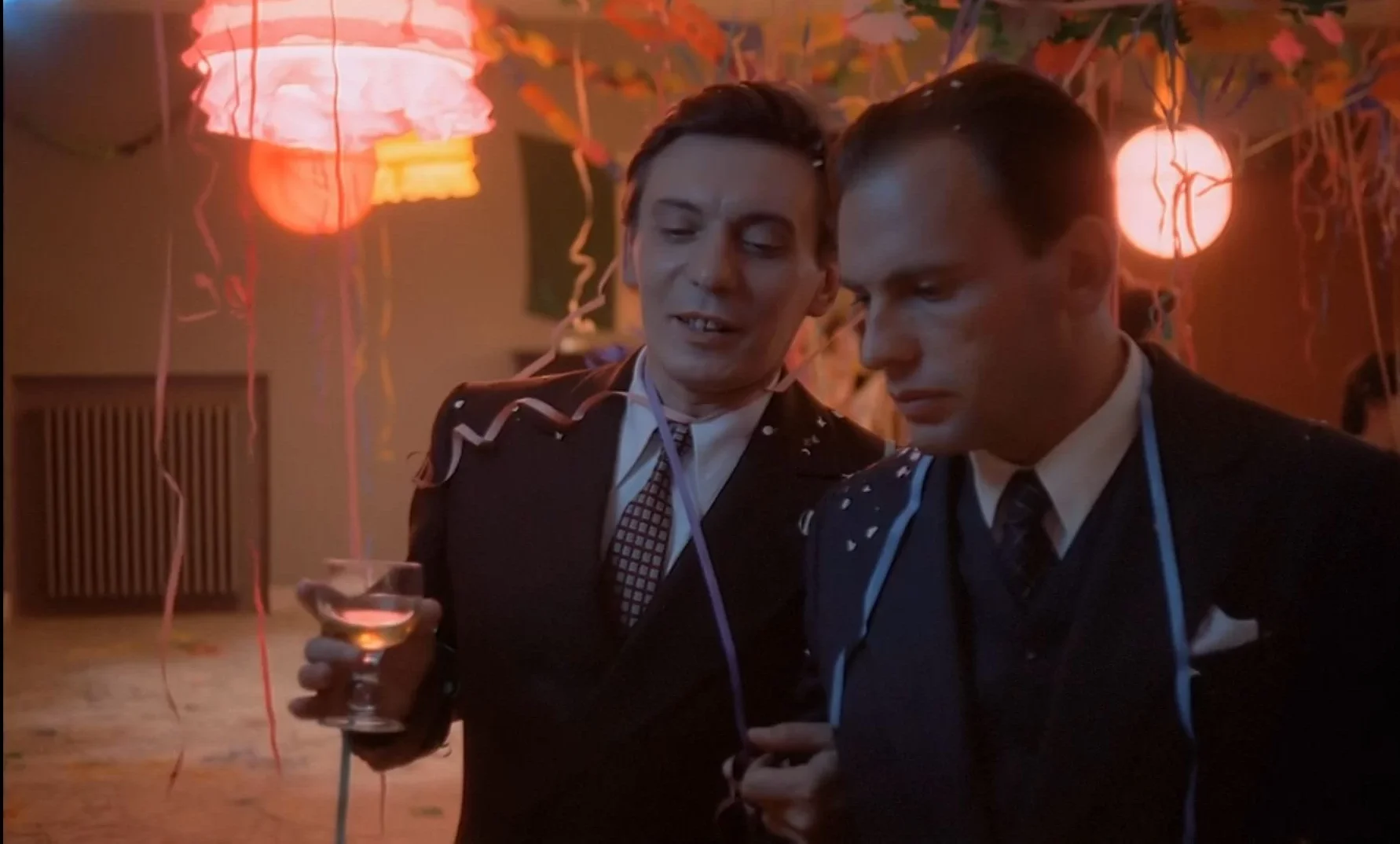Bernardo Bertolucci’s 1970 masterpiece, “The Conformist” (Il Conformista), stands as a classic example of Italian cinema’s ability to weave rich symbolism into its narrative tapestry. Among the many elements that play a significant role in this film, wine emerges as a powerful symbol of conformity and dissent.
Wine as a Symbol of Conformity:
In “The Conformist,” the main character, Marcello Clerici (played by Jean-Louis Trintignant), is a man deeply obsessed with fitting into societal norms. Wine is used as a symbol of the bourgeois lifestyle that Marcello seeks to embrace. His frequent encounters with wine, often in the company of his bourgeois friends, signify his desire to conform and belong to the prevailing societal structure.
The consumption of wine in the film is meticulously staged within luxurious settings, adorned with elaborate table settings and fine glassware. These scenes emphasize the aesthetic of conformity that Marcello strives to embody. Consequently reinforcing the idea that wine serves as a veneer of respectability in his pursuit of fitting into fascist-era Italy’s norms.
Wine as a Vehicle for Marcello’s Transformation:
As the film progresses, Marcello’s relationship with wine evolves, reflecting his internal struggles and conflicts. His initial association with wine is emblematic of his yearning to be “normal” in the eyes of society. However, as the narrative unfolds, wine becomes a catalyst for self-reflection and transformation.
Marcello’s encounters with Professor Quadri (played by Enzo Tarascio), a homosexual intellectual, significantly change his perspective. These meetings often involve wine and intellectual discussions that challenge Marcello’s conformity. The contrast between the bourgeois wine-drinking gatherings and these intimate, philosophical conversations serves as a visual and thematic pivot in the film.
Wine as a Symbol of Dissent:
The climax of “The Conformist” features a dramatic and pivotal scene set in a rural, rustic inn. Marcello and Professor Quadri, along with Giulia (Stefania Sandrelli), find themselves in a remote setting. Far removed from the lavish wine-soaked gatherings of their bourgeois friends. Here, wine takes on a new significance.
In this setting, the characters engage in a candid conversation about morality, ideology, and their roles in a fascist society. Wine, in this context, serves as a symbol of authenticity and rebellion against the superficiality of conformist ideals. Marcello’s encounter with the inn’s owner, a blind man, also underscores the transformative power of genuine human connection. Thus standing in stark contrast to the empty gestures of his conformist acquaintances.
Conclusion:
In “The Conformist,” wine is not just a beverage but a deeply symbolic element. Contribuiting to mirror Marcello Clerici’s journey from blind conformity to a heightened self-awareness. Through the use of wine, Bertolucci skillfully depicts the tension between societal expectations and personal awakening. Making it a potent symbol that resonates throughout the film. Marcello’s relationship with wine ultimately encapsulates the film’s overarching theme of identity. The struggle between conformity and self-discovery in the context of a fascist society.
Visit MovieItalyPlus to watch the movie
To read more article click here!






